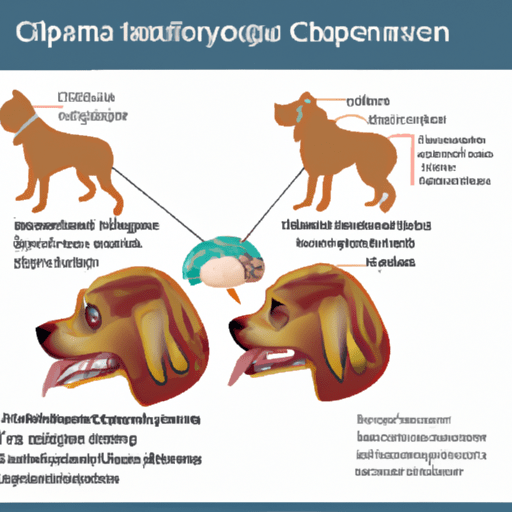“`markdown
What is Cerebellar Hypoplasia in Dogs?
Understanding Cerebellar Hypoplasia
Cerebellar Hypoplasia is a neurological condition that affects the part of your dog’s brain, the cerebellum, responsible for coordination and balance. It’s a disorder you won’t wish upon your furry friend, but if they are diagnosed with it, understanding the condition can help you manage it effectively.
The degree of disability your dog experiences can range from mild to severe, depending on the extent of underdevelopment or malformation of the cerebellum. While it can be a daunting prospect, remember, your dog can lead a happy life with your love and care.
Causes of Cerebellar Hypoplasia
- Genetic Factors: Some breeds are more susceptible to this condition due to genetic predispositions.
- Infections: If the mother is infected with a virus during pregnancy, it can affect the development of the pup’s cerebellum.
- Malnutrition or Toxins: Poor nutrition or exposure to toxins during the mother’s pregnancy can lead to cerebellar hypoplasia in pups.
| Cause | Prevention |
|---|---|
| Genetic Factors | Ensure responsible breeding practices |
| Infections | Keep the mother dog healthy and vaccinated |
| Malnutrition or Toxins | Provide a balanced diet and safe environment for the mother |
Symptoms to Look Out For
Should you suspect that your dog is suffering from this condition, here are some signs to watch out for:
- Unsteady gait or clumsiness
- Head tremors
- Difficulty with eating
- Frequent falling or stumbling
Treatment and Management
Unfortunately, there’s no cure for cerebellar hypoplasia. But don’t lose heart. With the right care and management, your dog can lead a fulfilling life. Here’s how you can help:
- Create a Safe Environment: Limit your dog’s access to stairs and high places to prevent accidents.
- Physical Therapy: Regular exercises can help improve your dog’s motor skills.
- Regular Checkups: Frequent vet visits are essential to monitor your dog’s health.
Living with a Dog with Cerebellar Hypoplasia
Living with a dog with cerebellar hypoplasia can be a challenge, but it’s also filled with rewards. Your dog’s spirit is not defined by their condition. They can still experience joy, love, and happiness, and they’ll love you all the more for being there for them.
Frequently Asked Questions
Q: Is cerebellar hypoplasia painful for dogs?
A: No, the condition does not cause pain.
Q: Can dogs with cerebellar hypoplasia live a normal life?
A: While they may face challenges, they can still lead a happy life with proper care.
Q: Is cerebellar hypoplasia contagious?
A: No, it’s not a contagious condition; it’s a developmental disorder.
Q: Can cerebellar hypoplasia worsen over time?
A: No, the condition does not progress. Symptoms may improve with physical therapy and proper care.
“`



